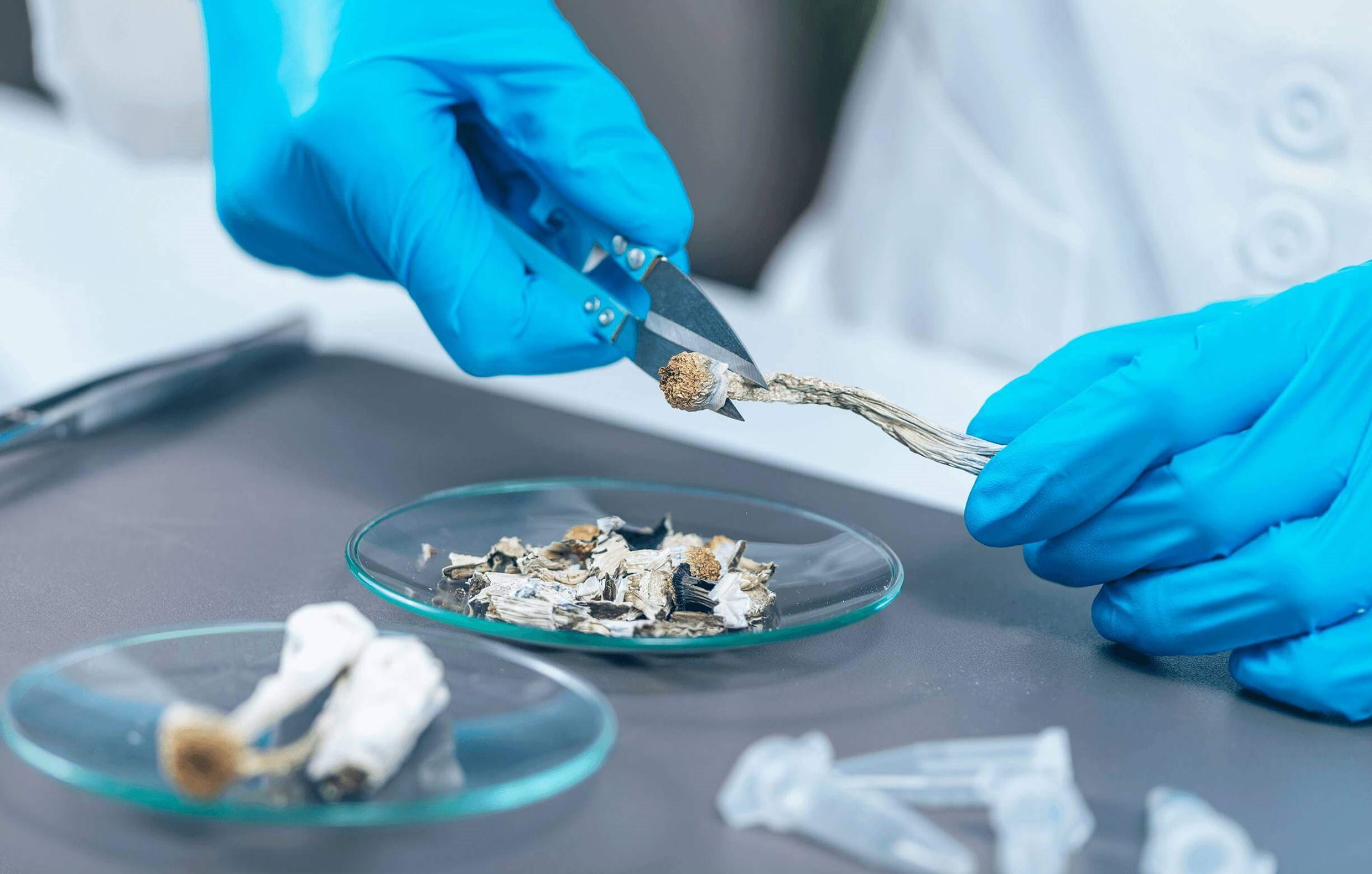Health
Kingston Hospital Launches Groundbreaking Psilocybin Microdosing Trials

The Kingston Health Sciences Centre (KHSC) has received approval from Health Canada to conduct the country’s first clinical trials on the daily, at-home use of microdoses of psilocybin, the active psychedelic compound found in magic mushrooms. This landmark study aims to investigate the effects of microdosing—specifically doses of between 2 and 3 milligrams—on individuals diagnosed with Generalized Anxiety Disorder (GAD).
While KHSC has previously contributed to medical research on psilocybin, this trial marks a significant shift in focus from traditional macrodosing studies. These larger doses are commonly used in therapeutic settings to address various mental health issues, but this research will explore the potential benefits of microdoses in managing anxiety levels in everyday life.
Dr. Claudio Soares, the lead investigator for the study, emphasized the potential for microdosing to provide new treatment options for patients who have not responded well to conventional antidepressants. “You have between 40 to 60% of patients responding to antidepressants,” Dr. Soares stated. “Not everybody can respond and not everybody can tolerate the side effects. Psychotherapy requires a lot of commitment, but not everyone has access, and it doesn’t work for everybody.”
This research aims to offer additional tools for managing anxiety, particularly for those who may struggle with existing treatment methods. Preliminary data on psychedelics suggests rapid effectiveness with minimal side effects. “The few subjects that we have who completed this study show some incredible responses within the first week of treatment, which is much faster than you see with antidepressants,” Dr. Soares noted. “If that turns out to be true on a larger scale, you likely have a very well-tolerated and effective treatment.”
Participants in the KHSC study will initially take their first microdose at the hospital under observation for two hours. Following this, they will take a week’s worth of doses home, reporting their experiences weekly over a four-week period. After this duration, some participants will switch to a placebo while others will continue with the actual psilocybin.
The research team is currently seeking adults aged 18 to 60 living with GAD who have not previously been exposed to psychedelics. Dr. Soares highlighted the challenges of finding participants without prior exposure, particularly as societal stigma surrounding psychedelics continues to diminish. “You have people who might have that stigma or reluctance to try psilocybin,” he explained. “But the fact that it’s a microdosing method and doesn’t involve a trip or a high is a plus for many.”
Despite the diminishing stigma around psychedelics, Dr. Soares noted that it has become increasingly difficult to recruit subjects for studies focusing on those without any previous exposure. The legalization of cannabis, for instance, has complicated medical research on that substance.
Individuals interested in participating in the study or seeking more information can contact the research team at [email protected]. As the exploration of psilocybin microdosing begins, KHSC stands at the forefront of potentially transformative approaches to mental health treatment.
-

 Education3 months ago
Education3 months agoBrandon University’s Failed $5 Million Project Sparks Oversight Review
-

 Science4 months ago
Science4 months agoMicrosoft Confirms U.S. Law Overrules Canadian Data Sovereignty
-

 Lifestyle3 months ago
Lifestyle3 months agoWinnipeg Celebrates Culinary Creativity During Le Burger Week 2025
-

 Health4 months ago
Health4 months agoMontreal’s Groupe Marcelle Leads Canadian Cosmetic Industry Growth
-

 Technology3 months ago
Technology3 months agoDragon Ball: Sparking! Zero Launching on Switch and Switch 2 This November
-

 Science4 months ago
Science4 months agoTech Innovator Amandipp Singh Transforms Hiring for Disabled
-

 Education3 months ago
Education3 months agoRed River College Launches New Programs to Address Industry Needs
-

 Technology4 months ago
Technology4 months agoGoogle Pixel 10 Pro Fold Specs Unveiled Ahead of Launch
-

 Business3 months ago
Business3 months agoRocket Lab Reports Strong Q2 2025 Revenue Growth and Future Plans
-

 Technology2 months ago
Technology2 months agoDiscord Faces Serious Security Breach Affecting Millions
-

 Education3 months ago
Education3 months agoAlberta Teachers’ Strike: Potential Impacts on Students and Families
-

 Science3 months ago
Science3 months agoChina’s Wukong Spacesuit Sets New Standard for AI in Space
-

 Education3 months ago
Education3 months agoNew SĆIȺNEW̱ SṮEȽIṮḴEȽ Elementary Opens in Langford for 2025/2026 Year
-

 Technology4 months ago
Technology4 months agoWorld of Warcraft Players Buzz Over 19-Quest Bee Challenge
-

 Business4 months ago
Business4 months agoNew Estimates Reveal ChatGPT-5 Energy Use Could Soar
-

 Business3 months ago
Business3 months agoDawson City Residents Rally Around Buy Canadian Movement
-

 Technology2 months ago
Technology2 months agoHuawei MatePad 12X Redefines Tablet Experience for Professionals
-

 Business3 months ago
Business3 months agoBNA Brewing to Open New Bowling Alley in Downtown Penticton
-

 Technology4 months ago
Technology4 months agoFuture Entertainment Launches DDoD with Gameplay Trailer Showcase
-

 Technology4 months ago
Technology4 months agoGlobal Launch of Ragnarok M: Classic Set for September 3, 2025
-

 Technology4 months ago
Technology4 months agoInnovative 140W GaN Travel Adapter Combines Power and Convenience
-

 Science4 months ago
Science4 months agoXi Labs Innovates with New AI Operating System Set for 2025 Launch
-

 Top Stories2 months ago
Top Stories2 months agoBlue Jays Shift José Berríos to Bullpen Ahead of Playoffs
-

 Technology4 months ago
Technology4 months agoNew IDR01 Smart Ring Offers Advanced Sports Tracking for $169










